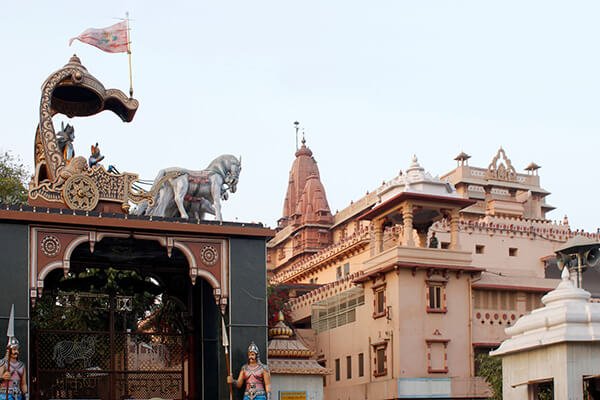In a significant development, the Archaeological Survey of India (ASI) has responded to a Right to Information (RTI) query, shedding light on the demolition of the Keshavdev temple by Mughal ruler Aurangzeb in Mathura’s Krishna Janmabhoomi temple complex. The disclosure, reported by the Times of India, highlights the historical context surrounding the site and its implications for the ongoing dispute.
The RTI query was initiated by Ajay Pratap Singh, a resident of Uttar Pradesh’s Mainpuri district, seeking details about the Krishna Janmabhoomi temple complex. In response, the superintendent of the Agra circle of ASI provided information confirming the demolition of the Keshavdev temple by Aurangzeb, with the site subsequently utilized for the construction of Aurangzeb’s mosque.
This revelation holds significant implications for the Krishna Janmabhoomi-Shahi Idgah Masjid dispute, which revolves around competing claims regarding the origins of the site. Hindu groups argue that the mosque was built by Aurangzeb in 1670 after demolishing an existing temple, asserting the site’s significance as the birthplace of Lord Krishna in Mathura.
Mahendra Pratap Singh, president of Shri Krishna Janmabhoomi Mukti Nyas, emphasized the importance of the ASI’s response in the legal proceedings surrounding the dispute. He stated that they would utilize the ASI’s confirmation while presenting their case in both the high court and the Supreme Court, further bolstering their historical evidence and claims.
The Krishna Janmabhoomi-Shahi Idgah Masjid dispute is closely intertwined with similar disputes concerning Ayodhya’s Ram Temple and Kashi Vishwanath Temple. The demand for reclaiming these sites has gained momentum following the construction of the Ram Temple in Ayodhya, reflecting broader sentiments within the Hindu community regarding the preservation of religious heritage.
The controversy surrounding the Krishna Janmabhoomi-Shahi Idgah Masjid dispute underscores the complexities of historical and religious narratives in India. With conflicting claims and interpretations of history, the dispute symbolizes broader debates over cultural identity, heritage preservation, and communal harmony.
In December, the Allahabad High Court granted permission for a survey of the Shahi Idgah Mosque, a decision that was later stayed by the Supreme Court. This legal maneuvering reflects the ongoing judicial scrutiny and deliberation surrounding the dispute, highlighting the need for a balanced and equitable resolution that respects the sentiments of all stakeholders involved.
